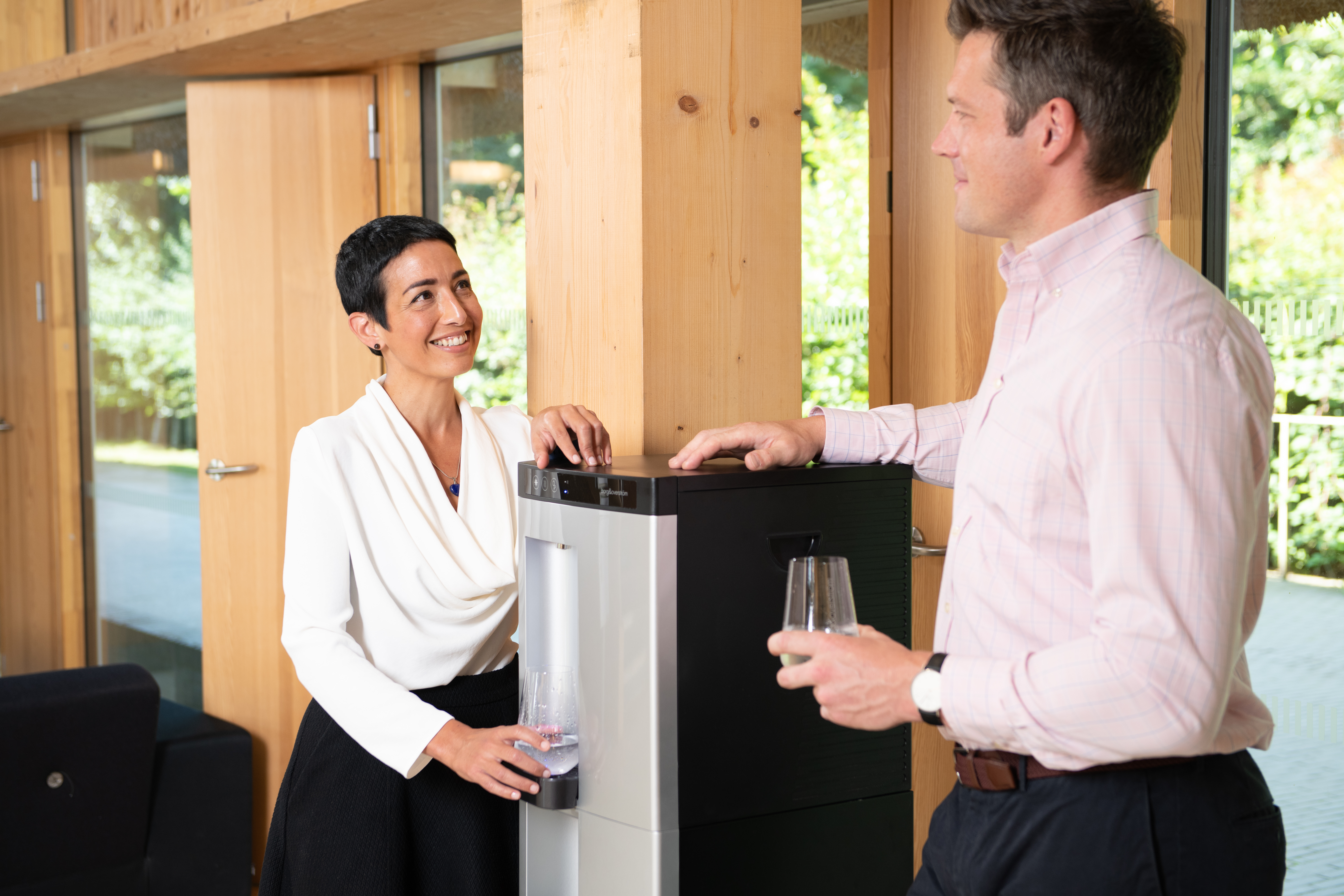Should I lease a water dispenser or buy outright?

A thorough comparison for end users
If you’re thinking of partnering with Borg & Overström, you may be weighing up the pros and cons of renting, purchasing or entering into a temporary lease agreement.
First of all, please remember that Borg & Overström only supply machines through our distributors, who can be found here. You can also reach out to us if you would like a specific distributor recommended depending on your location and specific needs.
Let’s take a look at the relevant factors of all three options which should inform the decision you are about to make.
Why rent a water dispenser?
1. Money saved. Perhaps the biggest benefit overall is the fact that renting will not come with capital expenditure (or CapEx) requirements. A purchased item is a fixed asset, and will incur certain mandatory costs.
2. Easy come, easy go. A rented or leased item also won’t tie you down with obligations that can be harder to shed. When you buy, you have to safely dispose of your machine according to WEEE (waste, electrical and electronic equipment) regulations.
Responsibility for health and safety also falls on the owner. Renters won’t need to perform their own PAT testing, water quality testing or sanitation checks.
Renting is the most flexible of these options and the easiest to walk away from. It comes with the advantage of shorter terms. You won’t be tied to anything for years at a time.
3. Easy budgeting. A rented dispenser is a far more measurable cost, which can be tracked over either the product’s projected lifespan or the duration of use. Regardless of your company’s size or setup, ease of budgeting is essential. There is rarely a hidden cost to rent. Conversely, purchase may come with install, maintenance and upgrade costs.
4. Ease of update. With innovation and stiff competition driving the water dispenser market, you can update with the times if new models become available, potentially as part of your contract.
5. Ease of maintenance. Rental agreements also tend to come with optional setup via the distributor’s engineers and guaranteed maintenance and breakdown coverage.
This continuous, mutual reliance on product performance between user and distributor keeps channels of communication open and eases relations between the two parties.
Why buy a water dispenser?
1. A settled purchase. As anyone who went from renter to owner will tell you: sometimes a one-and-done purchase is easier on your wallet and better for peace of mind.
Though there may be other expenses down the line, it is comforting to buyers that this is one they can permanently tick off their list.
2. Customisation. Outright ownership of your dispenser allows for flexibility with altering it. If you want to add or subtract features, you may be verging on damages with some rented machines, depending on the nature of your contractual agreement.
3. Tax benefits. An objective for any facilities manager, purchased assets can be offset against tax. Ownership already comes with better security, and easing tax burdens is a welcome prospect for any company.
4. Possibility of resale. A purchased asset can be a saleable one when kept in good condition. Once they are finished with their dispenser, a savvy owner could make a good sum if able to find the right buyer in the right market.
However, the downsides here remain. Ownership is responsibility, and the burden of what to do in the event of breakage is on that owner.
Why lease a water dispenser?
Leasing is a true “try before you buy” scenario. Lease agreements for water coolers tend to last three to five years. This is ample time for you to get to know your machine and handle the challenges of having one in your business.
Lease agreements will often end with a chance to buy outright, and if you have enjoyed your experience, you can make the arrangement permanent, maintain it or pivot to the flexibility of renting. For some, this option truly represents the best of both worlds: the longer term security of a purchase without the locked-in obligations implied.
Conclusions
Overall, you will need to take a broad look at what your company’s internal culture is like. Is it established and settled or more fluctuating? Newer, younger companies may shy away from buying outright. After all, what do young consumers and businesspeople do? Rent.
More established companies and the people who run them may simply view it as a long term investment, just as they do with their own properties.
Needs will also differ depending on the size of your organisation. Non-ownership means flexibility for companies undergoing rapid growth or in a fixed state where there is unlikely to be an explosion of revenue. For example, a hospital, which may be in a 20-year lease for certain equipment.
After considering these options, ask yourself – what is your typical style of procurement?
It may come down to how you regularly do business. Ultimately it comes down to which choice best represents your company culture and what you have the most experience with.
Whichever you finally choose, rest assured that Borg & Overström can connect you with the right distributor.
If you are interested in becoming a distributor, please complete the form found here to be connected with a member of our team.
